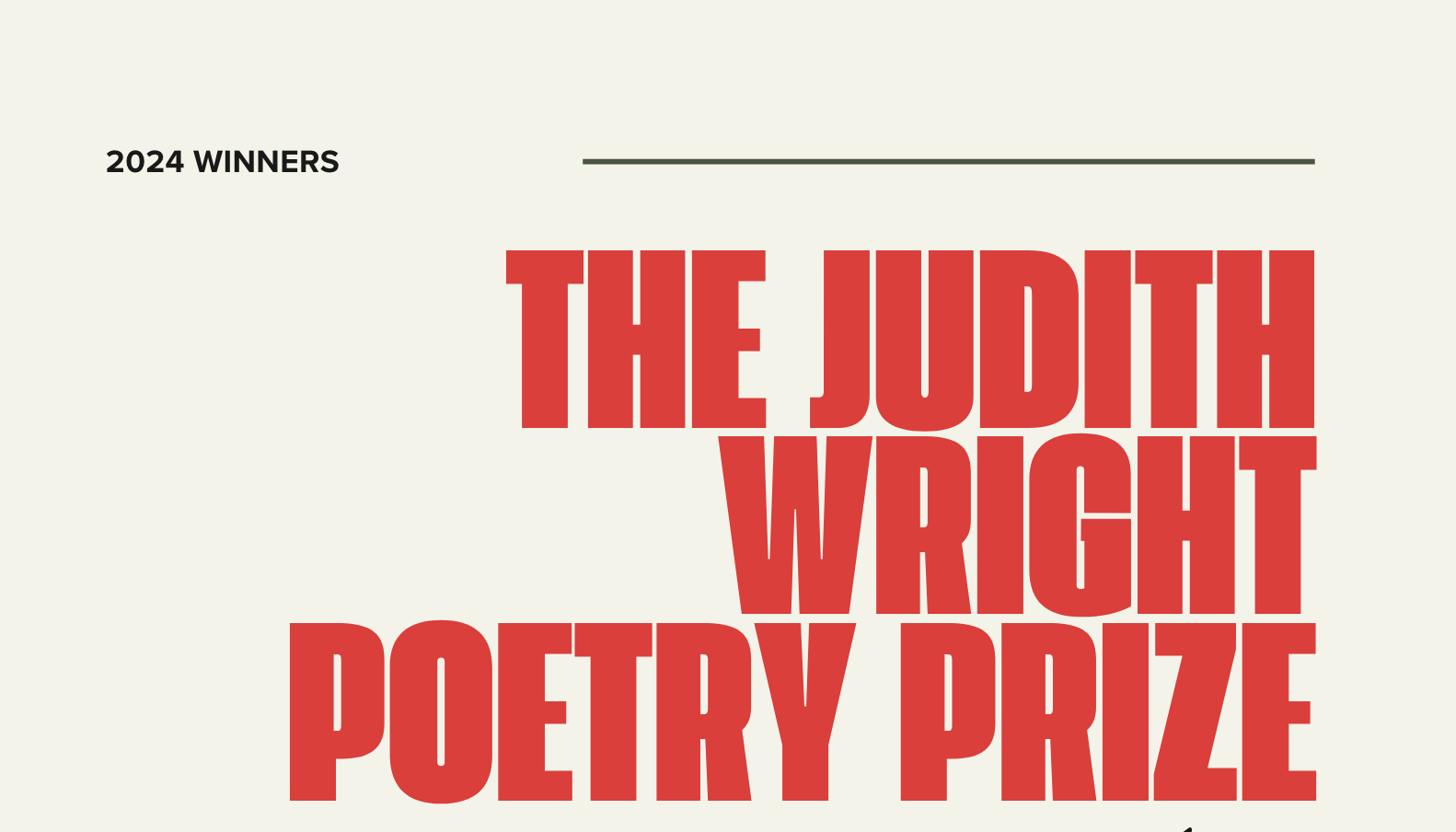After reading many hundreds of poems, and from a shortlist of eight standout poems, the judges of the Overland Judith Wright Poetry Prize for New and Emerging Poets 2022—Pam Brown, Lachlan Brown and Toby Fitch—have selected these three poems as the winners:
In the winning poem ‘VIRIDITAS / little big scrub poem’ (published in Overland #249), there is a big little mind at work, in love with trees, writing through and troubling ideas of land, colonialism, gender, autobiography and language. Phrase by phrase, word by word, even etymology by etymology (‘xantho’ > ‘xeno’ > ‘xero’), the poem emerges from its own scrub as a multifaceted collage containing critique, analysis and a personal growth narrative— ‘Twenty years ago I was fine experimenting with an upward Motility a chemical pastiche of reality / its ability to call the truth Perception I could collaborate with.’ This new pastiche, as it folds international non-binary and trans literary allusions into the Australian context, continues to unfold its thoughts and ideas via soundplay— ‘You are home Among the gum re-Constituting the chewing and Chastising that Lineage …’
The form of the poem is original—very wide-lined couplets emulate the ‘lowland vegetation’ imagery at the centre of the work, and the oddly placed capitalisations might at first make readers stumble, but this is only to inure us to a different kind of reading, a more lateral reading that sees the poem as a landscape (the Big Scrub region of northern NSW, where the poet/speaker grew up), and which allows us to become more conscious of colonial projections onto and extractions from land and country.
The runner-up, ‘Camperdown grief junk’ enacts a rich and varied alternative to terra nullius, as a series of ornithological guides cry out from the ‘grief junk’ of Camperdown Cemetery (Gadigal land / Sydney). Here, among the markers and tombstones of ‘early’ British settlement, the poet encounters the warnings and jeremiads of a ‘feathered oracle’, progressing past gravestones where the contemporary present and deeper modes of time are placed into shimmering dialectical relationships (from ‘misty antediluvian / newspaper headlines’ to ‘granite tears / no guilt enough for wipin’’). The work’s demanding and destabilising idiolect resists (colonial) English at every point, exposing its historic participation in the hegemonic structures of dispossession (‘curatin’ that ancient lie in gibberish’).
Evident throughout this work is a sonic dexterity, the patterning of sounds according to a series of juxtapositions that echo the ‘entropy craftin’ / masterpiece’ one of the speakers sees in the planet and its people. This is an arresting work that exceeds attempts at description, offering both epiphany and anti-epiphany in a vernacular challenge to inherited history. It is a poem of encounter, where both origin and ending are refigured in the ‘wombhole’ of the apocalyptic moment.
In third place, ‘New terms for timeless behaviours’ is a sophisticated poem that ‘ride[s] out on a cryptic breeze’, wending coolly from concept to concept as it takes in a cluster of current euphemisms and terms and their effects. Ordinary rooms are ‘called spaces’, sightlines or views have become ‘optics’. One impression is that the poet is nominally informed by how, in time, language alters through use and that euphemisms can become substitutes for actual action or change. Here notation easily conveys that idea.
Precise, spare, captivating lines relay unanticipated imagery and reflexive lines of thought—‘leave the mysteries / the rabbit holes / to Keats’. A modest metapoetic avows ‘… housebound / fifteenpage poems / are formidable acts / of concentration.’
This distinctive, multifaceted poem is a kind of synthesised ‘day-in-the-life’, moving adroitly through mood, scenes, thought, observation, and time: expressly cueing the final lines—‘scanning / for detail in a / high-speed credits scroll / where episodic means / continuous.’



